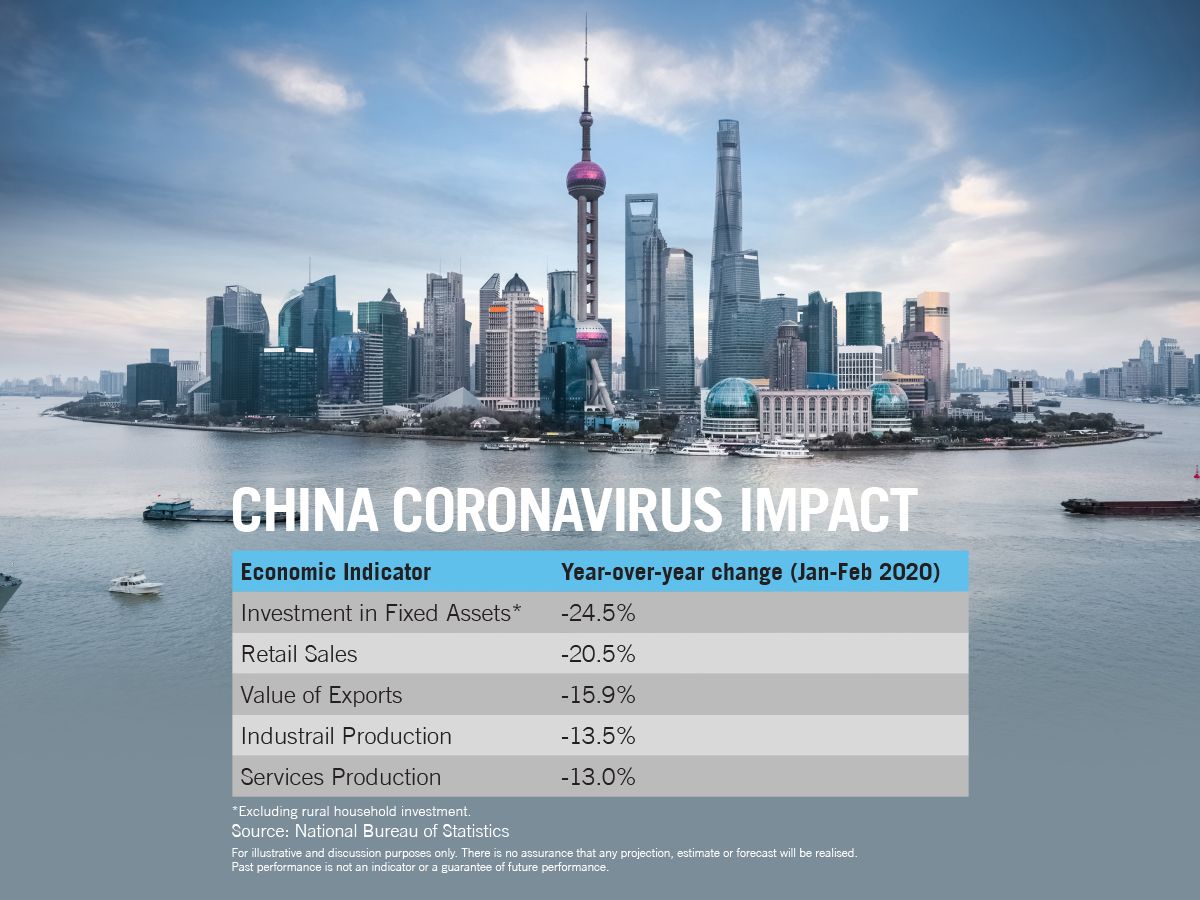The long-term investment case for emerging markets is still compelling
The combined equity value of 26 nations listed by MSCI Inc. as developing markets increased by $9.2 trillion since the end of 2009 through December 2019, according to data compiled by Bloomberg. Emerging markets ended 2019 on a high note, but 2020 seems to be a different year altogether.
Today even the most optimistic investors know the chances of repeating this are slim. The financial fallout from the coronavirus is spreading rapidly and all emerging-market assets — currencies, stocks and bonds — are underperforming.
Outflows from emerging market funds totalled more than $83 billion in March, according to data from the International Institute of Finance (IIF).
“Investors across the globe are worried about the uncertainty the coronavirus outbreak is bringing to financial markets. The ramifications have been widespread,” says Chetan Sehgal, Senior Managing Director, Director of Portfolio Management at Franklin Templeton Emerging Markets Equity. “But we recognise that this period will pass and that things will recover.”
Even though economic activity in many countries has dramatically slowed or stopped due to the coronavirus outbreak, there’s underlying long-term potential in emerging markets, according to Franklin Templeton, a global investment management organisation with over 70 years of investment experience, employees in more than 30 countries and managing over $580 billion in assets under management (as of March 31, 2020).
Here is a quick look at why the long-term investment case for emerging markets is still compelling for investors with a calm and rational approach.
Economic growth
While the coronavirus outbreak will continue to dominate headlines and inform how we approach emerging market investing, there are some distinct trends that have taken off over the past few decades.
“First, economic growth differentials between emerging markets and developed markets (DMs) remain in the former’s favour,” says Sehgal.
Around the world, emerging economies are expected to grow around three times higher than developed markets until at least 2024, according to figures by the IMF.
“We are witnessing a transformation in emerging markets, despite the fact that many are having to adjust to a new reality because of the coronavirus outbreak. They will continue to play a vital role in fuelling global economic growth,” says Andrew Ness, Portfolio Manager, Franklin Templeton Emerging Markets Equity.
China turning the corner
The world’s second-largest economy paid a very high price near term to contain the virus, but China is slowly turning the corner. Short-term Chinese economic data is the worst seen in modern times. For the January to February period, year-on-year retail sales data were -20 per cent, exports -17 per cent, fixed asset investment -25 per cent and industrial production -13 per cent, figures from National Bureau of Statistics reveal.

“We expect recovery to begin in Q2, however, GDP growth should be significantly below trend for 2020. The decline in oil prices should benefit China as a net importer,” says Ness. “There are signs that ‘life’ is returning to some companies locally, many of which have been incredibly resilient and adaptable throughout this crisis.”
Technology innovation
In terms of intellectual property and R&D spends, emerging markets have moved from imitation to innovation in recent years, another crucial factor that works in their long-term favour. “EMs are embracing technological innovation,” says Ness. “Many EM companies are leapfrogging those in developed economies in areas like e-commerce, digital payment and mobile banking.”
According to a report by online news portal Vox in March, China’s massive e-commerce infrastructure helped it through the coronavirus outbreak. JD.com said online grocery sales more than tripled year over year during a 10-day period between late January and early February. Today, e-commerce makes up a far higher percentage of retail sales in China than in the US.
The digital payment market in China is also multiple times that of the US. More broadly, EMs have also overtaken the US and Japan in patent applications. Emerging markets are also at the forefront of transformational technologies such as artificial intelligence, robotics, battery technology and supercomputers.
Resilience to shocks
Another reason for optimism is that emerging markets today are much more resilient to capital flow shocks. “EM institutions have reformed policies, which should help them better withstand market stress,” says Sehgal. “EMs have increased their foreign reserve holdings since the early 1990s, which matters because they are a pillar of support for currencies. Many EMs have also abandoned currency pegs to the dollar, making them less vulnerable to speculation or a strengthening of the greenback.”
EMs have also reduced reliance on dollar debt, while diversifying borrowing sources and increasing local currency debt issuances, says Sehgal.
Younger working-age populations
Mass urbanisation is transforming the face of emerging markets. By 2025, emerging markets will be home to over three-times the urban dwellers as the developed world, according to data from The Case for Emerging Markets Investments report by Franklin Templeton. By 2050, it will be close to five-times.
“EMs have a younger population with lower dependency ratios, while developed market populations are aging at a faster rate. By 2030, 86 per cent of the global working age population will live in emerging markets,” says Ness. “This paints a very clear picture about the potential for market dominance for those companies that can stay on top of this global trend — appropriately siting R&D and manufacturing centres while building brands that appeal to burgeoning local consumer markets as well as the global marketplace.”
Spending power
Emerging economies are also taking a bigger share of global purchasing power and traditionally developed economies are having a hard time keeping up. “As consumers in EMs earn more, they will be compelled to spend some of that wealth on their families’ lifestyles. Internet and technology are also working their magic — the internet allows consumers to access global brands in a way that wasn’t available a decade or so ago, with mobile making it more accessible,” says Ness.
Shares at a bargain
The current market dislocation is also an investment opportunity for active investors for looking for bargain buys. Stocks across emerging markets have dropped to a record discount to Wall Street, according to the IIF. “EMs are trading at a significant discount to developed markets, providing long-term investors with attractive investment opportunities,” says Sehgal.



